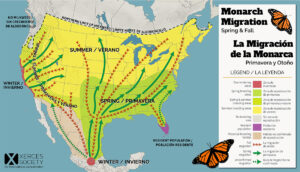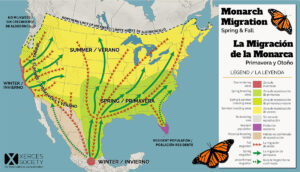The monarch butterfly has been gradually disappearing from gardens, woods and grasslands around the nation.
Because of that, the U.S. Fish and Wildlife Service is now proposing federal protections for the iconic butterfly under the Endangered Species Act. Federal officials may designate the species as “threatened” with extinction, a step below an endangered listing.
Widespread support is expected, as monarchs are considered one of the most beloved butterflies — a truth that was on display in Tennessee recently when a state agency launched “Project Milkweed.”
More: Planting milkweeds may help save monarch butterflies. Tennessee is offering free seeds. | WPLN News
Last year, the Tennessee Department of Transportation introduced a program that provides free milkweed seeds to residents. The plants are a key habitat for butterflies and the exclusive dietary choice of monarch caterpillars.
Two years in, the department has doled out nearly 1 million seed packets across the state.
Monarch butterfly populations have been decimated by climate change, logging, grassland loss and pesticide use. Some research suggests the species could become extinct in the country before the end of the century — with a high likelihood in the West.
If the species becomes federally listed, it will represent one of largest protections in the country. The butterflies cross a lot of ground in the continental U.S. during migrations between Canada and Mexico.
Environmental groups have long called on the U.S. Fish and Wildlife Service to list the monarch. In 2014, the Center for Biological Diversity petitioned the agency, which then took six years to deliver a reply. In 2022, the center filed a lawsuit and won a settlement requiring the government to decide whether to list monarchs by this year.





